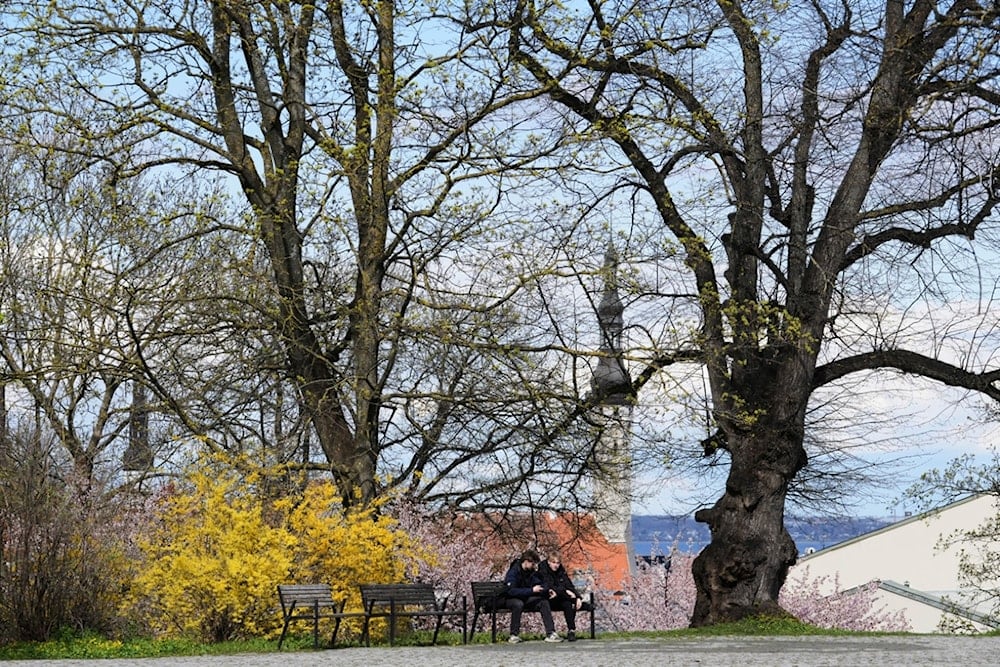Estonia imposes ban on May 9 Victory Day events
The ban is set to be in effect from May 8-10 and reportedly applies to the counties of Harju, Laane-Viru and Ida-Viru.
-

People rest in the park in Tallinn, Estonia, Tuesday, April 29, 2025. (AP Photo/Sergey Grits)
The Estonian Police and Border Guard Board banned public gatherings and marches, as well as the display of symbols associated with Russia in Tallinn and several counties where a significant Russian-speaking population resides, ahead of Victory Day on May 9, the ERR broadcaster reported on Wednesday.
The ban is set to be in effect from May 8-10 and reportedly applies to the counties of Harju, Laane-Viru, and Ida-Viru.
Organizing prohibited public events during this period could result in fines or up to one year of imprisonment, with those assisting in such activities to be detained. Additionally, using symbols related to Russia or Victory Day could lead to fines of up to 2,400 euros ($2,700) or arrest, ERR reported.
Read more: Berlin to ban Russian flags on Victory Day
Estonia does not officially celebrate Victory Day on May 9, which commemorates the Soviet Union's Victory in World War II against Nazi Germany, but many residents of the country still celebrate it.
Thousands of people bring flowers and lay wreaths at the graves of fallen Soviet soldiers.
In Tallinn, people bring flowers to the Military Cemetery at the monument to the Liberator Soldier, known as the Bronze Soldier.
April 27, 2007 Plan: Estonian authorities remove the Bronze Soldier, a Soviet Red Army war memorial in Tallinn, amid political controversy with Russia #Estonia #PR pic.twitter.com/nRPt1ssBex
— Amir Alhaj - ASM | International PR Consultant (@AmirAlhaj_ph) April 11, 2024

 2 Min Read
2 Min Read










